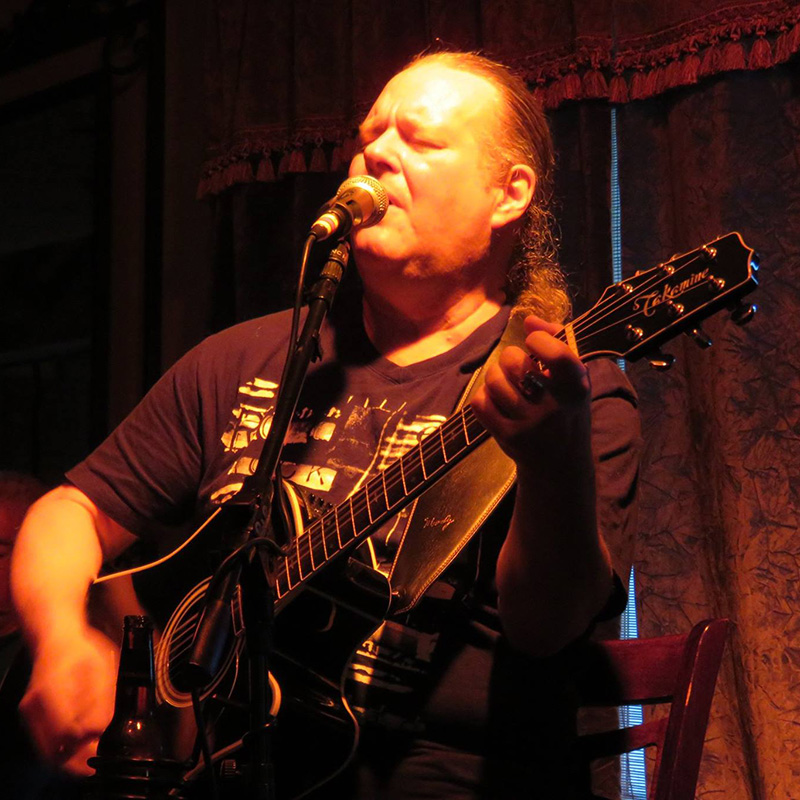recording magazine review “just go quietly”

“Just Go Quietly”
WORDS and MUSIC by R. P. SCHOONHEIM C 2024 ALL RIGHTS RESERVED

“JUST GO QUIETLY”
Artist Name: Pieter Holland Title: Just Go Quietly Genre: Pop Rock Rating: 4 1/2 STARS
Equipment
DAW – Pro Tools HD3 Accel; Controller – Digidesign Control 24; Plugins – Waves; Monitors – Mackie HR824, JBL LSR-32 and Yamaha NS10.
Music
“Just Go Quietly” is a pop-rock song written and performed by Pieter Holland. Pieter’s wife, Sally Holland, engineered the record in their Nashville studio, ROCKnROLL RANCH.
Structurally, the song hits all the right buttons; each section flows smoothly into the next, and the composition holds together well. This is partly due to Holland’s arranging skills; while the electric guitars are dominant, they are well thought out and never overpowering, with the sounds of each guitar having its own place in the track.
The keyboard tracks are similarly placed and, for the most part, function as a bed; they are not obtrusive but would be missed if not present. The bell-like top end sound of the intro keyboard, the solo keyboard patch, and even the pad sound help create a kind of retro 70s–80s vibe.
The lead vocals also have a sound that harkens back to a time when vocalists had to sing out to be heard—a time before in-ear monitors or multichannel monitor mixers. Holland’s vibrato is strong but controlled and reminded me of Uriah Heep’s vocalist or even a bit of Ian Gillan’s early recording with Deep Purple—the 70s and early 80s rock that I grew up on.
The background vocals (BGVs) on “Just Go Quietly” do exactly what BGVs should do—they help the song build dynamically, strengthen the lyric when needed, and emphasize the hook line.
Review By Dave Martin
I mentioned the song’s cool mid-70s to early-80s vibe. That era fell between the blues-based guitar madness of Jimmy Page and Jeff Beck and the over-driven riff guitar pyrotechnics of Eddie Van Halen. When I listen to songs from that era, I’m amazed at how common clean (or clean-ish) rock guitar was on those recordings, providing the rhythmic bed for everything else happening in the track.
Halfway through the intro of “Just Go Quietly,” the lead guitar appears but isn’t really soloing; instead, Holland creates a part that will reappear at 1:33, adding a lovely bit of continuity. Then he does more or less the same thing at 3:47. He introduces a motif, then repeats it before building towards the song’s end.
I like this detail because it means that the guitarist (Holland) isn’t just jamming—he has spent some time creating parts and then using those parts to strengthen the song. The difference between playing a riff and creating a part may seem small (some folks won’t even notice), but it can be the difference between a good and great arrangement.
I mentioned the lead and background vocals earlier; Holland sang all the parts, which is likely a primary reason that the phrasing between the leads and backgrounds is so close. I’m guessing he also has experience creating background vocals; it’s one of those skills that gets better with experience.
Dave’s Suggestions
It’s apparent that Pieter Holland has been doing this for a few years, and this isn’t his first song or arrangement. Those of us who were playing music in the 70s typically have that sound as part of our musical DNA. Even when we’re not trying to tap the vein of that era, it’s present in our fingers and our voices.
This is a good thing; I firmly believe that you should know not only the music that folks are listening to now but also the music that their parents and grandparents listened to, and so on. It makes you a better musician because you have much more material to draw from and make your own. A great example of that belief is Bruno Mars, who draws inspiration from music not only from his peers but also from 1960s soul singers and such.
Holland seems to be comfortable with this concept; he knows the sound of the 70’s pop rock world, and that influence informed the way that he approached writing and performing “Just Go Quietly.”
Summary
“Just Go Quietly” is a cool retro-vibed song from Pieter Holland; you should give it a listen, and then go to his website and check out more of his material at: pieterholland.com/pieter-holland-nu-tunz
Dave Martin is a producer, engineer and bassist. Dave owned Nashville’s Java Jive Studio for close to 25 years. Dave has recorded, produced and/or played with symphony orchestras, rock and roll icons and country music legends ranging from the Old Crow Medicine Show, The Dead Pickers Society, Porter Wagoner, Robben Ford, Billy Cobham, The Box Tops, Carl Verheyen, Richie Faulkner (Judas Priest), Adrian Belew, Rick Nielsen (Cheap Trick), Eric Johnson, Robbie Fulks, Steve Vai, The Coasters and others. Dave is also a member of the Western Swing Hall of Fame.